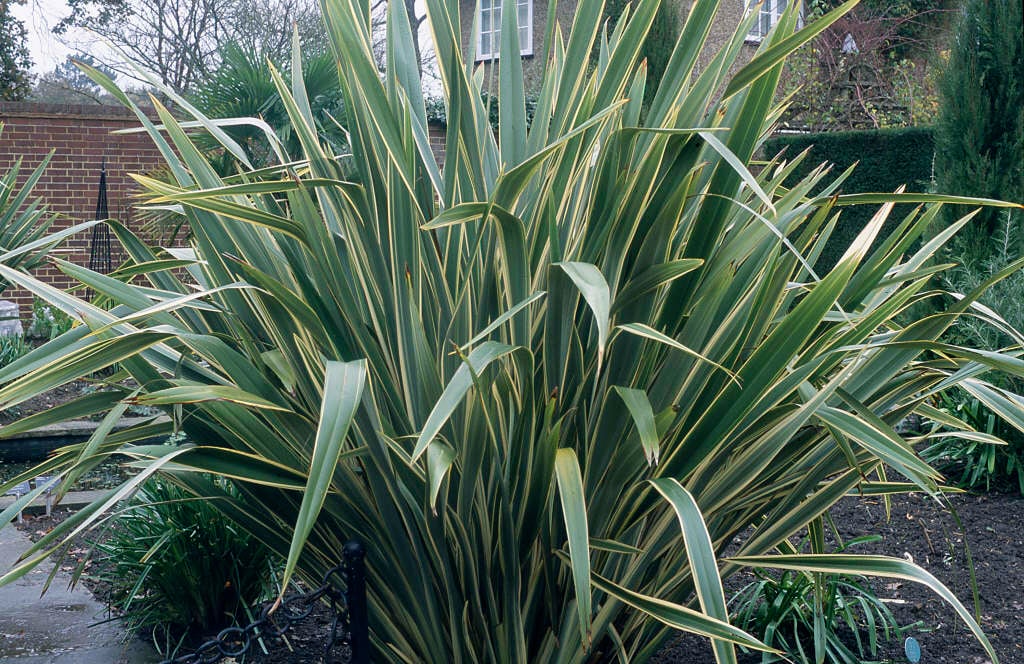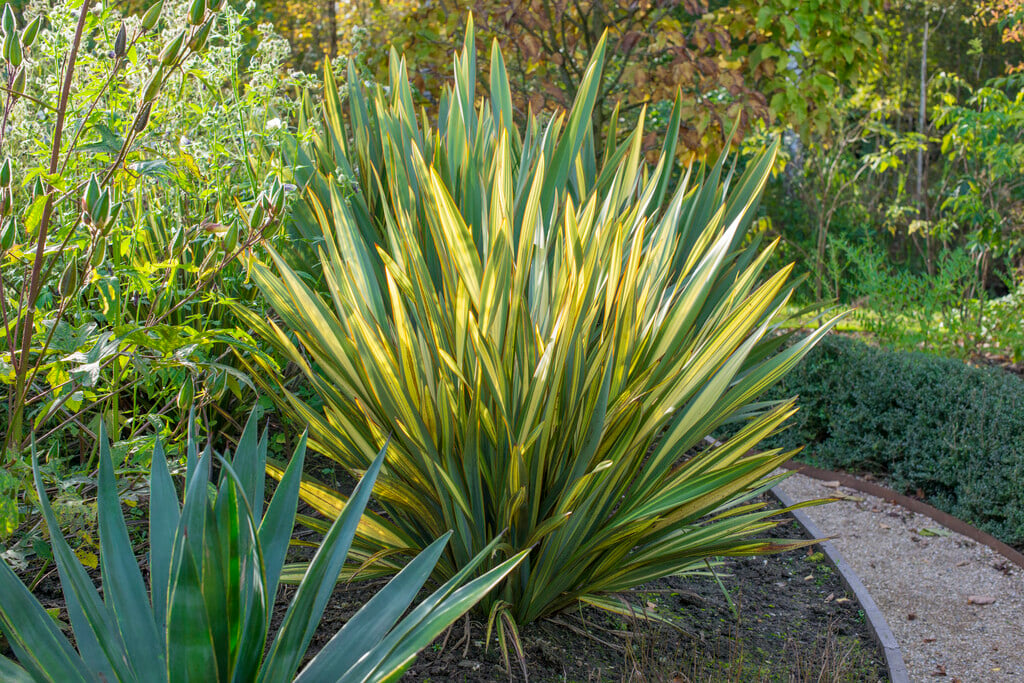Not the plant you're looking for? Search over 300,000 plants
Herbaceous Perennial
Size
Ultimate height
1–1.5 metresTime to ultimate height
5–10 yearsUltimate spread
1–1.5 metresGrowing conditions
Chalk
Clay
Loam
Sand
Moisture
Moist but well–drained, Well–drainedpH
Acid, Alkaline, NeutralColour & scent
| Stem | Flower | Foliage | Fruit | |
| Spring | Cream Green | |||
|---|---|---|---|---|
| Summer | Red | Cream Green | ||
| Autumn | Cream Green | |||
| Winter | Cream Green |
Position
- Full sun
Aspect
South–facing or East–facing
Exposure
Exposed or Sheltered Hardiness
H5Botanical details
- Family
- Asphodelaceae
- Native to GB / Ireland
- No
- Foliage
- Evergreen
- Habit
- Clump forming
- Genus
Phormium are evergreen perennials, making a large clump of leathery, strap-shaped leaves, with tall panicles of small, tubular flowers in summer
- Name status
Accepted
How to grow
Cultivation
Grow in fertile, moist but well-drained soil in full sun. In frost-prone areas, provide a deep, dry mulch in winter
Propagation
Propagate by division in spring
Suggested planting locations and garden types
- City and courtyard gardens
- Cottage and informal garden
- Architectural
- Low Maintenance
- Flower borders and beds
Pruning
Deadhead in autumn to prevent winter rocking which can damage the plant
Pests
May be susceptible to phormium mealybug
Diseases
May be susceptible to honey fungus (rarely)
Love gardening
Sign up to receive regular gardening tips, inspiration, offers and more
View our Privacy Policy
Get involved
The Royal Horticultural Society is the UK’s leading gardening charity. We aim to enrich everyone’s life through plants, and make the UK a greener and more beautiful place.

